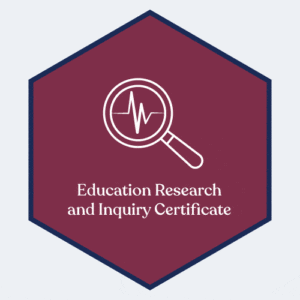LISA EDMENSON, GEOGRAPHY TEACHER, DOWDALES SCHOOL, UK
EMMA AUBREY, HEADTEACHER, DOWDALES SCHOOL, UK
The appraisal process is one in which educational establishments participate across the country and has been a legal requirement for schools across England since 2012 (DfEDepartment for Education - a ministerial department responsible for children’s services and education in England, 2012). The appraisal process is a means of monitoring teacher performance and supporting individuals with their continued professional development. This article will investigate an alternative research-based approach to the appraisal process that one school has implemented.
Original appraisal process
Prior to establishing a research-based approach to the appraisal process, each teacher in the school had an appraisal that focused on three key targets related to their own professional practice, one of which related to GCSE examination results. However, after evaluating this method, it became apparent that there were several significant issues with this process. One of the main concerns was that teaching practice became heavily focused on students’ target grades and therefore purely GCSE examination outcomes. Consequently, pedagogic practice relating to teaching and learning unconsciously became less of a focus for individual practitioner development. It also resulted in questioning the purpose of target grades in this process – were the targets for the individual students or had they become a measure for appraisal?
It was decided that action needed to be taken to refocus the appraisal process on teaching and learning, which not only enabled teachers to focus on areas of pedagogy in which they were particularly interested, but also contributed to effective whole-school improvement and student outcomes.
Research-based approach to the appraisal process
Scholars of education have argued that a profession’s legitimacy and authority go hand-in-hand with the production of research knowledge.
Tatto, 2021, p. 34
The new appraisal process embraced educational research to revolutionise teacher pedagogy and practice, ensuring that teachers were prevented from merely being seen as ‘technicians’ and instead viewed as innovative practitioners striving to develop their own practice (Sachs, 2015). Westbroek et al. (2022) suggest that if teacher research is for the purpose of improving practice, then practitioners should ‘take their goal systems as a framework for articulating research questions, and focus their investigations on how goal-means relationships can be improved’ (p. 72).
Therefore, the new appraisal system focused on research being the fundamental driver behind the process. The research-driven appraisal process requires each individual teacher to set themselves a research question that they will investigate over the course of the academic year. This question is related to the teacher’s own professional practice and the school priorities. The key pedagogic drivers that help practitioners to focus their research can include metacognition, adaptive teaching, SEND (special educational needs and disability), and literacy and reading, which are our own school priorities. The Education Endowment Foundation (EEF) has been an essential source for engaging practitioners with research, including their work on the ‘five a day’ approach to SEND and their approach to literacy (Quigley et al., 2018). Further engagement with alternative sources of information is also encouraged to ensure that teachers investigate their research questions thoroughly and from differing perspectives. This process is supported through constructive conversations with the appraiser, who guides practitioners to reflect and engage with learning conversations throughout, ensuring that ‘dialogue is purposeful and intentional’ (Stoll, 2012). This appraisal process is a cyclical endeavour, with a research question set in an initial meeting. There is then a mid-year review to monitor progress, with a final meeting at the end of the process to evaluate impact linked to evidence. Evidence can be in numerous forms, including but not exclusively: work in exercise books, data related to students’ outcomes, reports from other colleagues who may have observed lessons, rewriting of schemes of work or the development of department resources.
Examples of research questions include:
- How can formative assessment be improved to enable greater understanding of students’ prior knowledge and to ensure that prior learning is effectively retained? (Class teacher)
- How can we improve the homework engagement of students in geography? (Head of department)
- What strategies are effective at decreasing persistent absence in the year group? (Pastoral leader)
- How can we improve the metacognitive abilities of boys across the school? (Senior leader)
The research-based appraisal process shifted to focusing on the development of new ideas and pursuing areas of interest in a practitioner’s own teaching, which in turn would improve the outcomes of all students. To ensure that high-quality research was conducted, the structure of appraisal remained, with trained appraisers using structured pro formas and a moderation process undertaken by the headteacher and deputy headteacher. This process was designed to be of high challenge but low risk, consequently encouraging teachers to participate in risk-taking, which will ultimately help them to develop their ideas (Stoll and Temperley, 2009). Furthermore, although the appraisal process is still linked to pay progression, for the completion of the research project there is the requirement for an evaluation of the impact that this has made on students’ outcomes and the contribution to the whole-school improvement plan.
Every teacher is an expert in their own subject and it is important that they are presented with opportunities to develop this expertise and pursue areas of development that they believe are important. By ensuring that time (as part of 1,265 hours’ directed time) is allocated to critical reflection of one’s own practice, it enables teachers to stop and evaluate their own practice in a profession that is immensely demanding.
Further development
Although this process is no longer in its infancy, there are still areas for further development that are currently under consideration. One thought is that it would be beneficial for practitioners to complete further development of the research process to ensure that they are confident when conducting research methodology, such as the use of qualitative and quantitative data.
Although the individual teachers’ appraisal foci come from the whole-school priorities originally, we are seeking to establish how these could be shared with all. One way in which this could be achieved is through departments, with practitioner research contributing to department improvement planning. Consequently, this research would contribute to the continued professional development of all teachers in that department.
A final area under consideration is the production of a school journal, wherein practitioners would voluntarily contribute their research question and findings. This would encourage the sharing of best practice across the school and enable all staff members to benefit from the research of their colleagues.
Ultimately, research is a fundamental opportunity for teachers to engage with issues that pertain to their own classrooms, subjects and expertise, thus addressing problems that are unique to their individual settings. Furthermore, it enables teachers to develop their own pedagogical practices by engaging with the most recent research, ultimately improving their professional practice, contributing to school improvement and positively impacting on student outcomes. Laroes et al. (2018) state that ‘engaging teachers in research could be a stepping stone to bridge the gap between research and practice’ (p. 194), and what better way than by using the invaluable wealth of experience and expertise of a school’s teaching workforce.












